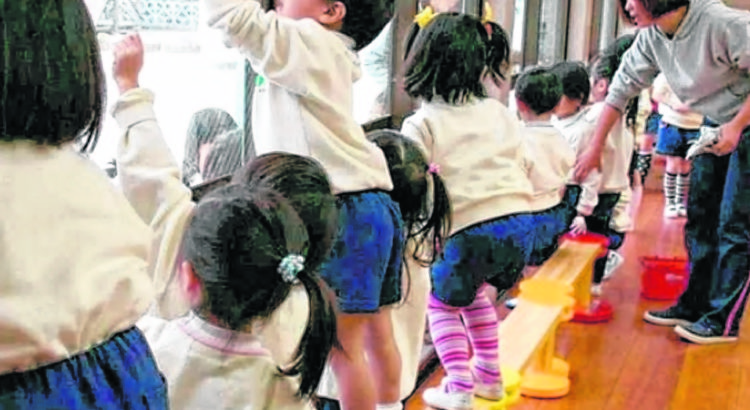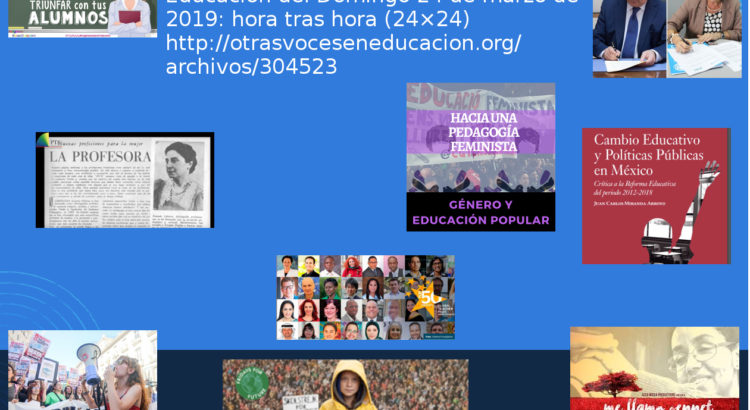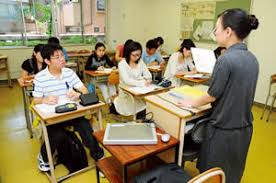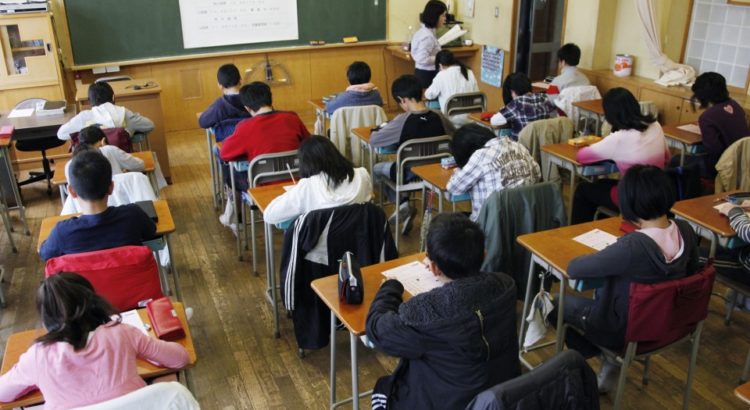Asia/Japón/universityworld
La discriminación profundamente arraigada contra las mujeres se convirtió en un tema importante de preocupación pública después de las revelaciones en agosto de 2018 por una investigación del gobierno japonés de un escándalo grave en el que se descubrió que los solicitantes de admisión a la Universidad de Medicina de Tokio y otras escuelas de medicina habían sido manipulados deliberadamente para permitir Tomas masculinas superiores.
Ahora, en una conferencia de prensa el 25 de marzo, las abogadas que representan a un grupo de 33 mujeres anunciaron que presentaron una demanda combinada de JPY130 millones (US $ 1,2 millones) en el Tribunal de Distrito de Tokio contra la Tokyo Medical University por discriminación en los exámenes.
Hasta el momento, la universidad se ha negado a comentar sobre la demanda presentada, pero el año pasado admitió deducir puntos de mujeres candidatas, se disculpó con las víctimas y prometió enmiendas, incluyendo la revisión de los resultados de los exámenes para algunos. Pero el grupo de 33 mujeres que tomaron los exámenes de ingreso entre 2006 y 2018 apuntan a un dolor y un sufrimiento debilitantes como resultado de la discriminación.
La abogada Yukiko Tsunoda explicó que algunos JPY7.5 millones se habían recaudado de la financiación colectiva para la acción legal, muy por encima del objetivo inicial de JPY2.5 millones.
“Este es solo un hecho que muestra que el público está conmocionado y disgustado con la flagrante discriminación de género de Japón. Más personas están conscientes y quieren un cambio «, dijo, y agregó que la demanda, que no tiene precedentes contra una universidad en Japón, es» un paso en esta dirección tan esperada «.
El gobierno ya anunció que suspenderá los subsidios a la Tokyo Medical University para este año y el próximo año (la universidad recibió JPY2.3 mil millones (US $ 20.8 millones) del gobierno en el año fiscal 2017) y redujo los subsidios del gobierno a otras siete universidades que tienen Manipularon los exámenes de ingreso en desventaja de las mujeres solicitantes, anunció en enero la ministra de Educación, Masahiko Shibayama.
La Universidad de Nihon, que recibió JPY9.1 mil millones (US $ 82.3 millones) en 2017, enfrenta un recorte del 35% en fondos gubernamentales este año, mientras que la Universidad de Fukuoka, la Universidad de Medicina Iwate, la Universidad de Juntendo, la Universidad de Medicina de Kanazawa, la Universidad de Kitasato y la Universidad de Showa verán su financiación gubernamental recortada en un 25%.
Necesito hacer más
Sin embargo, la atención se centra en el gobierno para hacer más para ayudar a las mujeres a seguir carreras científicas. Los esperados cambios en la base de investigación científica de Japón, dominada por los hombres, ahora se han convertido en una prioridad del gobierno mientras Japón se enfrenta a una fuerte caída en la inscripción de estudiantes en universidades relacionadas con el declive demográfico, junto con una oposición cada vez mayor a la continua discriminación contra las mujeres en el mundo académico. fuerza de trabajo científica.
Hace más de una década, Japón creó una nueva categoría de subvenciones públicas, con una proporción objetivo del 20% de los investigadores de STEM (ciencia, tecnología, ingeniería y matemáticas) que son mujeres. Actualmente, en todos los campos de STEM, poco menos del 16% de los investigadores japoneses son mujeres, según un Libro Blanco de la Oficina del Gabinete sobre la Igualdad de Género 2017. Esto es aproximadamente la mitad del promedio entre los países de la OCDE.
La Oficina del Gabinete informa una proporción promedio de 14% para mujeres en ciencias y 10,6% en campos de ingeniería en 2017. La proporción de Premios Nobel para mujeres en comparación con los hombres es inferior al 3% y hay pocas investigadoras japonesas que trabajan como supervisoras en laboratorios equipos
En la Universidad de Kyoto, que cuenta con el mayor número de premios Nobel de Japón en ciencia y medicina, las mujeres investigadoras representan solo el 11% de ellas, tanto en humanidades como en ciencias.
El Dr. Kayo Inaba, jefe del Centro de Promoción de la Igualdad de Género en la Universidad de Kyoto, dice que la financiación y los tabúes sociales siguen siendo los principales obstáculos. Y otras científicas se hacen eco de la opinión de que, sin cambios sociales, las iniciativas gubernamentales no funcionarán.
A pesar de la desaceleración demográfica, “los subsidios generales del gobierno para las universidades nacionales se están reduciendo, lo que dificulta ofrecer puestos de tiempo completo para los investigadores, una situación que afecta a las mujeres en particular. La inseguridad financiera es un tema clave «, dijo Inaba, ex directora del Centro para Mujeres Investigadoras, establecida en 2006, y bien conocida por su propia investigación sobre el papel de las células dendríticas en el inicio y la regulación de las respuestas inmunitarias.
Haciéndose eco de las mujeres que lograron llegar a la cima, Inaba dice que tiene la suerte de contar con el apoyo familiar ampliado.
Ahora hay un esfuerzo concentrado para transmitir una imagen positiva de las mujeres que ocupan los primeros puestos en investigación. Por ejemplo, el premio L’Oreal-UNESCO para mujeres científicas en 2018 incluyó a la Dra. Yukiko Ogawa, de 29 años. Logró controlar la microestructura y las propiedades mecánicas del magnesio mediante tratamiento térmico en el Instituto Nacional de Ciencia de Materiales en Tsukuba, uno de Japón. Los mayores centros de investigación científica.
El discurso de Ogawa señaló que el premio de la UNESCO realmente la alentó al tener un gran impacto en su carrera, pero también acreditó en su discurso de aceptación el apoyo brindado por su familia y supervisores en su éxito.
“En nuestra sociedad, el estereotipo en el que las mujeres tienen la responsabilidad de las tareas domésticas y el cuidado de los niños todavía está tristemente muy vivo. Muchas mujeres jóvenes tienen que abandonar sus carreras debido al matrimonio y la crianza de los hijos ”, dijo.
Apoyo gubernamental
Las subvenciones del ministerio de educación se dividen en tres categorías principales para ampliar la igualdad de género en las universidades con un presupuesto total de JPY989 millones (US $ 9 millones) en 2018, que se aumentará a JPY1.08 mil millones (US $ 9.8 millones) este año fiscal.
Los fondos se extienden por períodos de tres años para apoyar proyectos que prometen diversidad en la investigación, proyectos para aumentar el apoyo a las investigadoras que desean regresar a sus carreras después de los descansos de maternidad, y alentar a las alumnas de secundaria a ingresar a la ciencia.
Incluyen la prestación de apoyo para el cuidado infantil, campañas de sensibilización sobre género dirigidas especialmente a los padres de estudiantes de escuelas secundarias y programas de tutoría para que las investigadoras continúen sus carreras.
Keidanren, la federación de negocios más grande de Japón, también está liderando el aumento de científicas, con un enfoque especial en los eventos públicos en las escuelas secundarias para alentar a las estudiantes a ingresar a los campos de la ciencia y la tecnología.
Los fondos públicos ahora apoyan una serie de centros de igualdad de género en universidades que están dirigidas por mujeres científicas. No obstante, todavía es raro encontrar mujeres investigadoras como supervisoras o jefas de equipos de investigación.
Objetivos del gobierno para las mujeres.
En 2016, las universidades de Japón establecieron objetivos para aumentar el porcentaje de investigadoras en 2021. La Universidad de Tohoku, por ejemplo, planea aumentar las investigadoras del 13% al 19%, y ha comenzado a introducir puestos de profesores solo para mujeres.
El Dr. Yuko Harayama, ex miembro ejecutivo del Consejo de Ciencia, Tecnología e Innovación de la Oficina del Gabinete, vincula las cifras sombrías con la escasa conciencia pública acerca de la importancia de aumentar el número de mujeres en la ciencia.
“El techo de cristal es la causa principal de que menos mujeres sean promovidas a las mejores posiciones en los campos STEM. Los modelos sociales profundamente arraigados en los que las mujeres son consideradas como más valiosas en la familia, hacen que a las investigadoras les resulte muy difícil compaginar las demandas domésticas con la responsabilidad de una carrera profesional. Los hombres, por otro lado, pueden concentrarse en el trabajo, dándoles una ventaja ”, explicó.
La Universidad de Nagoya cuenta actualmente con una proporción de 18% de mujeres científicas: la cifra es la más alta entre las siete universidades nacionales más importantes de Japón y un hito en el país que tiene el balance de género más bajo en los campos de STEM entre los miembros de la OCDE.
Hiroko Tsukamura, director del Centro Universitario de Nagoya para la Igualdad de Género, establecido en el año 2000, lo vincula con el aumento de las medidas de apoyo para las mujeres.
Tsukamura es un investigador sobre el mecanismo cerebral que regula la función reproductiva y el mecanismo que media la diferenciación sexual del cerebro en los mamíferos, principalmente utilizando modelos animales experimentales, como los roedores.
“Aumentar el número de mujeres investigadoras allana el camino para diversas opiniones en estudios científicos y fortalece la calidad de la educación superior. «Les dije a mis colegas varones que el centro de igualdad de género ha aumentado la reputación de la Universidad de Nagoya al atraer a más mujeres investigadoras».
La profesora Yukiko Kunugi, presidenta de la Sociedad de Mujeres Científicas Japonesas, dijo a University World News: “En las universidades, la igualdad de género ha mejorado considerablemente. Sin embargo, es sólo en los campos de las ciencias de la vida, biológicos y médicos. El efecto no se puede ver en el campo de la ingeniería ”.
Agrega que el número de mujeres ingenieras en las empresas no ha aumentado mucho. “El objetivo [establecido por el gobierno] no se puede lograr solo con las medidas gubernamentales recientes [sobre el apoyo de género]”.
Ella dice que se necesita un apoyo aún mayor del gobierno para crear un entorno laboral para las mujeres. “También necesitamos un sentido de expectativas sociales para el éxito de las mujeres. Creo que sin un cambio en la sociedad japonesa, la política gubernamental y las medidas para mejorar la igualdad de género no funcionarán «.
Fuente: https://www.universityworldnews.com/post.php?story=20190326145440541













 Users Today : 21
Users Today : 21 Total Users : 35459616
Total Users : 35459616 Views Today : 55
Views Today : 55 Total views : 3418027
Total views : 3418027